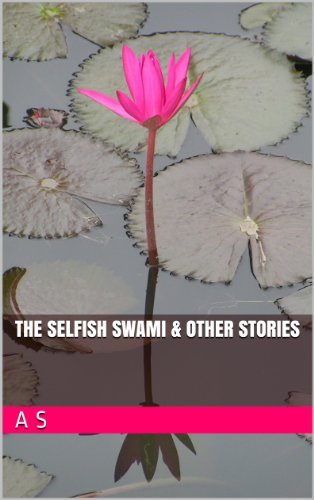I visited Mt Vernon today. It is the home of United States' first president General George Washington. The mansion and grounds are somewhat interesting. But I found their museum / education center to be truly wonderful.
It was in the museum at Mt Vernon that I discovered exactly for how long the American War of Independence went on: eight years, from 1775 to 1783.
Just EIGHT years! By contrast, the first war of Indian Independence happened in 1857. The British had already colonized many parts of India for years before then. It would be 90 - NINETY - f-ing more years after that first so called war for India to get its independence. How many more humiliated, killed, enslaved during that time? How much of India's wealth shipped to Britain, while India was impoverished, famines caused and millions killed?
In fact, we don't (CAN'T) even call India's bid for freedom a war. We only call it a struggle. Like a slave's struggle for freedom.
Nearly 62 years after we got independence, as I sit here and type this, my heart burns! We had to 'struggle' to get the freedom that should have been ours by right. An ancient civilization, which had already had many great and vast empires, a land which had raised countless armies of its own, a land of millions of people - such a land had to struggle for over a century before becoming independent. An independence which came with the cost of partition, a cost paid for by the life and blood and property of millions.
By contrast, America's army that fought in their war of independence was relatively young. It was outnumbered by the British army 10-to-1. The American population (not counting the Native Americans) was extremely small, compared to the Indian population. They WON their independence in just eight years. They did not wait for any f-ing British to grant them independence. They just declared it and they stuck to their guns.
As we drove back from Mt Vernon, I kept telling to myself: "No wonder India is where it is, compared to where America is".
Saturday, May 16, 2009
Saturday, May 09, 2009
Information Vs Knowledge
Question: What is the difference between information and knowledge?
Answer:
Information is the mundane and factual. Knowledge is the profound, the deep and the holistic.
Information is merely the external defined relationship - be it as a gf-bf or a husband and wife. Knowledge is the deep shared love, the awareness of each others moods, the connected empathy, the intimate familiarity with each others scents, the feel of the different parts of each others bodies - the vast foundation of which the external relationship is merely a limited feature or symptom.
Like love which can spill across the defined boundaries of relationships, knowledge can spill over the limits of discrete bits of information.
Answer:
Information is the mundane and factual. Knowledge is the profound, the deep and the holistic.
Information is merely the external defined relationship - be it as a gf-bf or a husband and wife. Knowledge is the deep shared love, the awareness of each others moods, the connected empathy, the intimate familiarity with each others scents, the feel of the different parts of each others bodies - the vast foundation of which the external relationship is merely a limited feature or symptom.
Like love which can spill across the defined boundaries of relationships, knowledge can spill over the limits of discrete bits of information.
Introducing Anand Giridharadas
Today, I am happy to introduce my readers to Anand Giridharadas.
Some of you may already know Anand. He is an American-born child of Indian immigrants, who moved to India in 2003 to work at the management consulting firm McKinsey & Company. From 2005 to 2008 he was South Asia correspondent for The New York Times , based in Mumbai. His column “Letter from India” appears twice a month in The New York Times and its global edition, The International Herald Tribune. He now lives in the village of Verla in Goa, India, and is writing a book about social change in modern India.
When I read articles about India by foreign journalists, my reaction quite often is a face-palm. These articles are usually peppered with inaccuracies, interpretations and conclusions based on a poor understanding of India's complexities, a breathless exaggeration and a niggling lack of authenticity. I have often wondered why these articles are not written by Indians themselves. This is an issue not only in the media, but also in Western academia where topics related to India are not adequately presented from the Indian perspective nor represented by Indians themselves.
In this context, it is refreshing to read Anand's articles. He comes across as being very sincere, empathic and balanced when talking about India. I present a few examples for you to read and judge for yourself:
India Calling
The Special Sting of Personal Terrorism
In Cellphone, India Reveals an Essence
Some of you may already know Anand. He is an American-born child of Indian immigrants, who moved to India in 2003 to work at the management consulting firm McKinsey & Company. From 2005 to 2008 he was South Asia correspondent for The New York Times , based in Mumbai. His column “Letter from India” appears twice a month in The New York Times and its global edition, The International Herald Tribune. He now lives in the village of Verla in Goa, India, and is writing a book about social change in modern India.
When I read articles about India by foreign journalists, my reaction quite often is a face-palm. These articles are usually peppered with inaccuracies, interpretations and conclusions based on a poor understanding of India's complexities, a breathless exaggeration and a niggling lack of authenticity. I have often wondered why these articles are not written by Indians themselves. This is an issue not only in the media, but also in Western academia where topics related to India are not adequately presented from the Indian perspective nor represented by Indians themselves.
In this context, it is refreshing to read Anand's articles. He comes across as being very sincere, empathic and balanced when talking about India. I present a few examples for you to read and judge for yourself:
India Calling
The Special Sting of Personal Terrorism
In Cellphone, India Reveals an Essence
Subscribe to:
Posts (Atom)
















